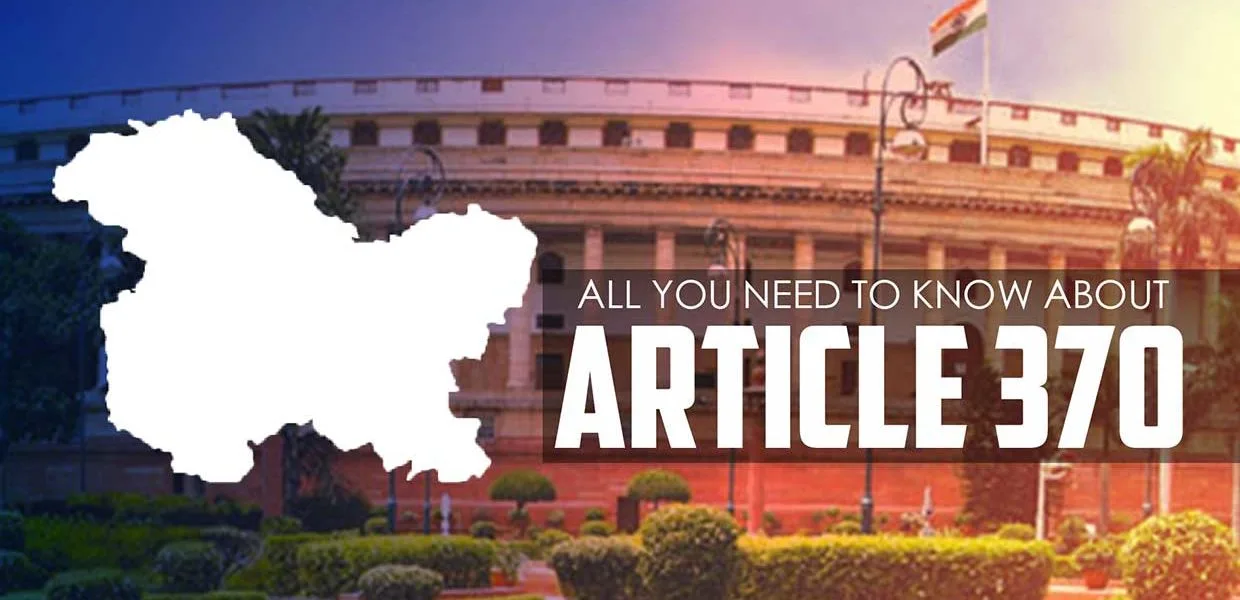Table of content
Introduction to Article 370
Article 370 of the Indian Constitution was a temporary provision that granted special autonomy to the region of Jammu and Kashmir. It was incorporated in the Constitution in 1949, shortly after India gained independence from British rule. This article allowed the state of Jammu and Kashmir to have its constitution, flag, and autonomy over all matters except foreign affairs, defense, finance, and communications. It was seen as a way to bridge the gap between India and the state, which had a majority of Muslims.
For many years, Article 370 has been a source of contention between the Indian government and various stakeholders in the region. While supporters argue that it is necessary to protect the unique identity and special status of Jammu and Kashmir, critics believe that it hinders the integration of the state into the rest of India.
key features of Article 370
the Indian Parliament’s legislative powers in Jammu and Kashmir. The central government can only make laws for the state in matters of defense, foreign affairs, finance, and communications. This means that many laws passed by the Indian Parliament do not automatically apply to Jammu and Kashmir, and the state has the authority to make its laws on a wide range of subjects.
Another important aspect of Article 370 is the provision that allows the President of India to declare that the Article is no longer applicable to Jammu and Kashmir. This has been a point of contention between the state government and the central government, with both sides interpreting the provision differently.
The Controversy Surrounding Article 370
Over the years, Article 370 became a hot topic of debate in India. Critics argued that it hindered the integration of Jammu and Kashmir with the rest of the country and perpetuated a sense of separatism. The special status granted to the state also led to accusations of discrimination against non-residents in terms of property rights and job opportunities. Proponents of Article 370 argued that it was necessary to protect the unique identity and culture of the region.
Revocation of Article 370
In August 2019, the Indian government made the bold move to revoke Article 370, effectively stripping Jammu and Kashmir of its special status. This decision was met with mixed reactions, with some hailing it as a step towards complete integration and others condemning it as a violation of the rights of the people of Jammu and Kashmir. The revocation also divided opinions internationally, with some countries expressing concern over the impact on the region’s stability.
Video Source: Paurush Sharma
Impact of Article 370 Revocation
The revocation of Article 370 had far-reaching consequences, both positive and negative. On one hand, it opened up opportunities for development in the region by allowing laws applicable to the rest of India to be implemented in Jammu and Kashmir. On the other hand, it led to a surge in tensions and security concerns, with protests and communication blackouts becoming common occurrences.
Conclusion
Article 370 will forever remain a contentious topic in the history of India. Its revocation marked a significant turning point in the relationship between the Indian government and the people of Jammu and Kashmir. The future of the region remains uncertain, with challenges and opportunities waiting to be explored.
The repercussions of this decision are still being felt, with debates and discussions continuing on the future of the region.
Frequently Asked Questions
1. What was the purpose of Article 370 of the Indian Constitution?
– Article 370 granted special autonomy to the region of Jammu and Kashmir.
2. Why was Article 370 revoked in 2019?
– The Indian government believed that revoking Article 370 would lead to greater integration and development in the region.
3. How did the revocation of Article 370 impact the region of Jammu and Kashmir?
– The revocation led to a mix of positive and negative consequences, including increased development opportunities and heightened security concerns.
4. What were the main arguments for and against Article 370?
– Critics argued that Article 370 hindered integration, while proponents believed it was necessary to protect the region’s unique identity.
5. What is the current status of Jammu and Kashmir post-revocation of Article 370?
– Jammu and Kashmir are now officially Union Territories of India, with the central government having greater control over the region’s governance.
For More Reading Click Here.
